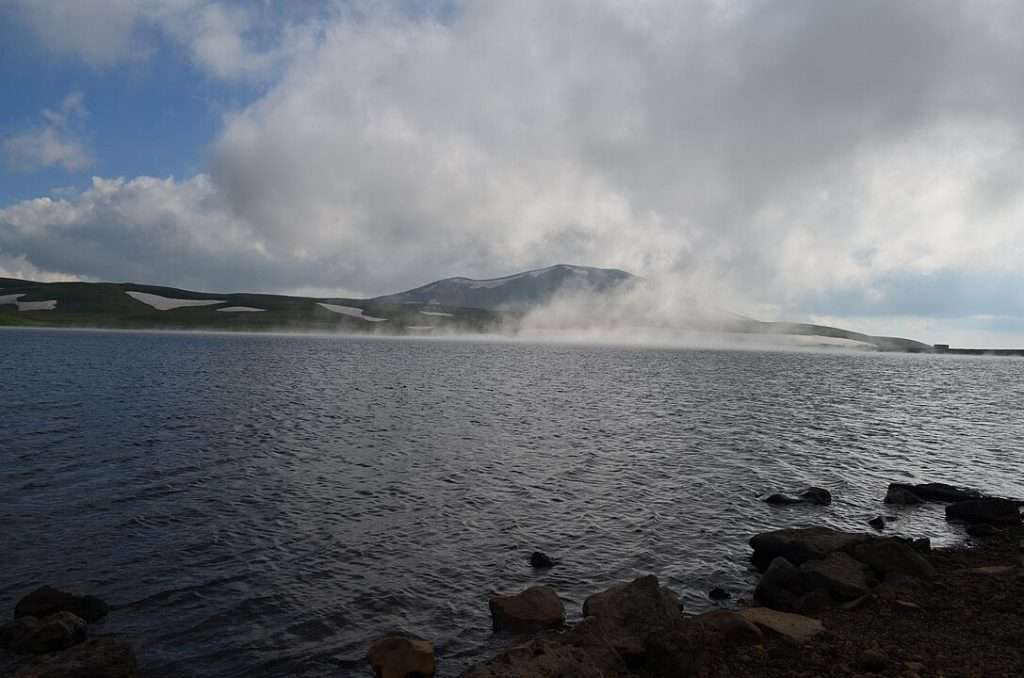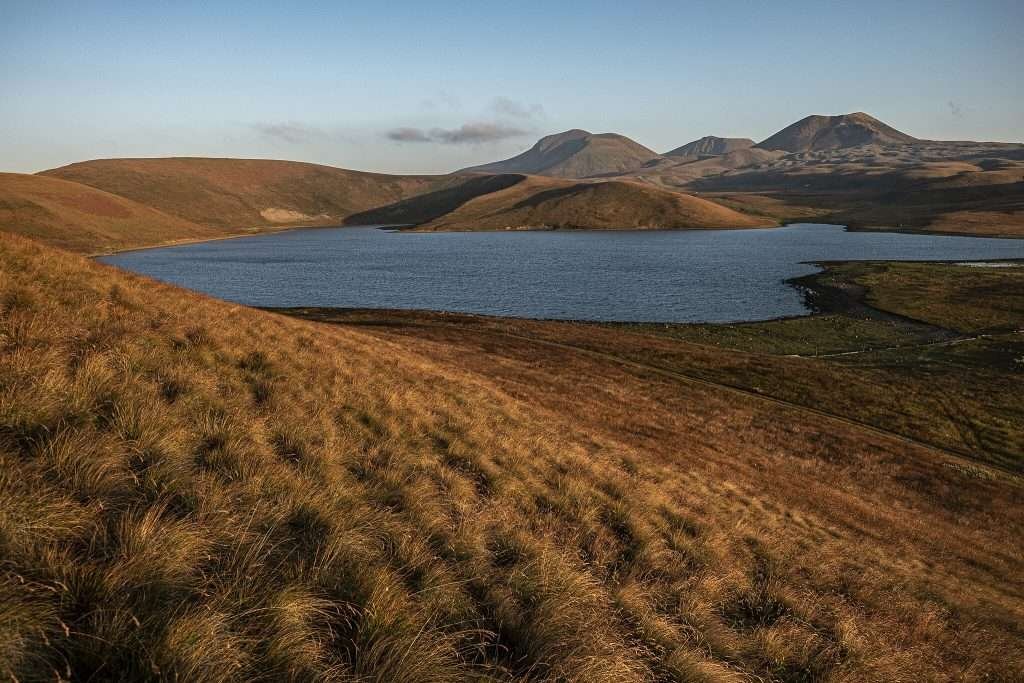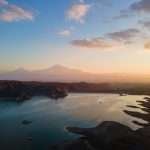Lake Akna (Armenian: Ակնա;) is a crater lake situated in the eastern part of the Kotayk Province in Armenia, lying within the boundaries of the Gegham mountains. This article delves into the geographical features, history, and ecological aspects of Lake Akna, providing a comprehensive understanding of its significance in the Armenian landscape.
Geography
Located on the border between the Kotayk and Gegharkunik provinces, Lake Akna is positioned on a near-peak peninsula of the Geghama Mountains on the slopes of Mount Aknasar. It is approximately 10 km west of the village of Tsaghkashen. The lake is 3030 meters above sea level, covering a surface area of 0.5 km². The surrounding region is 0.53 km², characterized by young volcanic cones and alpine meadows. Lake Akna’s clear and sweet waters have a maximum depth of 15 m, and its water capacity is estimated at 3.91 million m³.
Hydrology
Lake Akna is primarily fed by snowmelt and springs, contributing to its pristine water quality. The lake’s hydrological features play a crucial role in maintaining the region’s ecological balance, supporting a variety of flora and fauna.

Reservoir
In 1959, a reservoir was created by damming Lake Akna, with a subsequent reconstruction in 1976. The dam is constructed mainly of earth materials and spans a length of 360 meters. During winter, the lake freezes, showcasing the region’s seasonal variations.
Natural Significance and Conservation
The lake is encompassed by peaks of the Geghama range, including Aknasar, Narine, Shushan, Shamprasar, and others, creating a scenic panorama reflected in the lake’s waters. Since August 14, 2008, Lake Akna has been listed as a state natural monument by the Government of the Republic of Armenia, ensuring its protection and recognition as a site of significant natural value.





